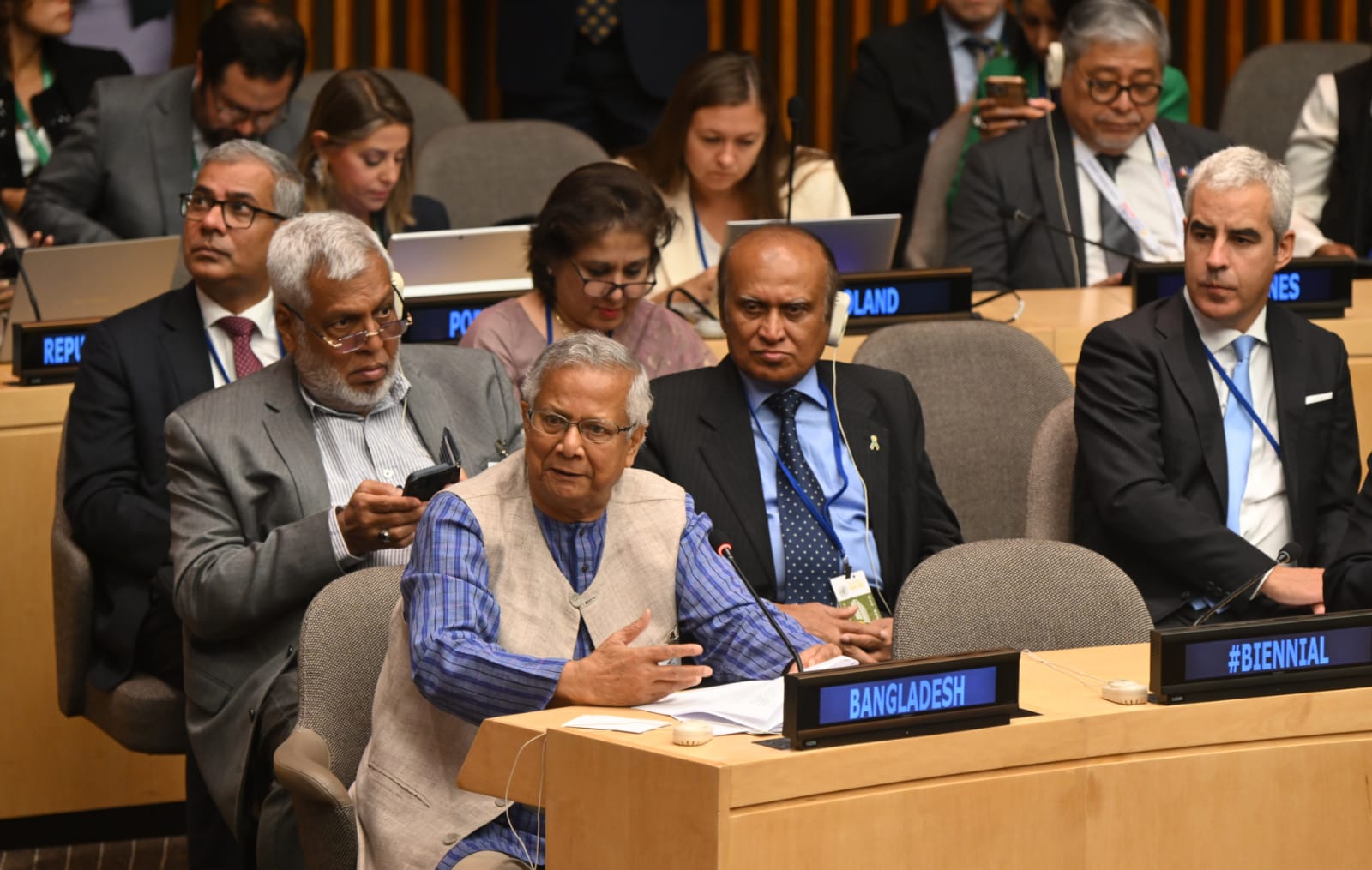News Flash
News Flash

NEW YORK, Sept 24, 2025 (BSS)- Suggesting five priorities for better financing the SDGs, Chief Adviser Professor Muhammad Yunus today urged the world leaders to build an economy of dignity, shared prosperity, and resilience, ensuring no one is left behind.
"Let us build an economy of dignity, shared prosperity, and resilience, ensuring no one is left behind," he said.
The Chief Adviser made the call while delivering speech at the opening segment of First Biennial Summit for a Sustainable, Inclusive and Resilient Global Economy: Implementing Commitments on Financing the Sustainable Development Goals in the UN headquarters here in the USA.
He said it is a moment full of both promise and responsibility. The commitments made at the Fourth International Conference on Financing for Development must become actions, he added.
Prof Yunus said closing the US$ 4 trillion annual investment gaps for the SDGs is formidable, yet essential.
"We must heed the voices of the marginalised that depend on us. In Bangladesh, we believe poverty should not be a barrier to one’s dreams," he said.
The Chief Adviser said financial inclusion and access to resources are instruments of justice when a woman starts a business, youths gain solar power and IT, children in settlements attend schools with access to nutrition and sanitation-transformations become real, and enduring.
He said the Seville Commitment provides a renewed framework for stronger domestic resource mobilisation, tackling illicit flows, empowering development banks, and ensuring accountability of the institutions.
Focusing on five priorities for better financing the SDGs, Prof Yunus said first, mobilise domestic resources fairly, supported by international assistance.
Tax systems must be progressive, transparent, and ensure multinational corporations pay their share, he said.
Negotiations under the UN Framework on International Tax Cooperation must address these inequities, he added.
The Chief Adviser said UN budget cuts or shrinking ODA would be counterproductive for countries like Bangladesh that hosts 1.3 million Rohingyas amid several other crises like battling climate shocks, and economic turbulence. "Global support must expand.
Secondly, he suggested leveraging innovative finance and social business. Blended finance and enterprises that reinvest profits to solve problems are proven drivers of jobs, inclusion, and dignity, he said.
Thirdly, Prof Yunus called for reforming the global financial architecture and debt governance, saying developing countries need greater voices.Debt should be a tool for resilience and development, not austerity, he said.
Fourthly, he suggested enforcing transparency, preventing illicit financing and ensuring citizen participation.
People, especially youth, must know how resources are used and hold institutions accountable, he said.
Fifth, he called for accelerating investment for the most vulnerable, resilient housing, climate-smart agriculture, healthcare, education, and nature-based solutions.